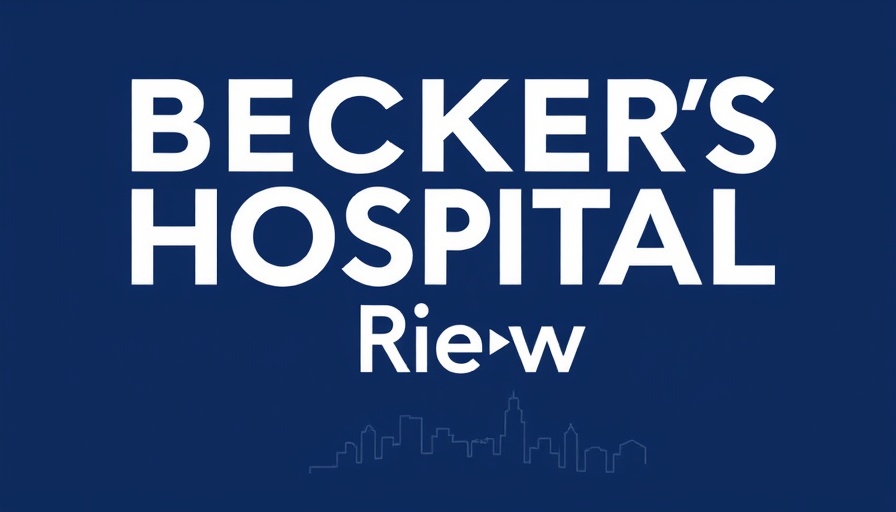
Spotlighting Community Hospital Leaders in 2025
Community hospitals are often the beating hearts of their locales, tirelessly working to provide vital medical services while addressing the increasing healthcare access gaps within underserved areas. At the forefront of this mission are the CEOs and presidents who lead these essential institutions, each one uniquely attuned to the needs of their communities. As we delve into the profiles of some of the standout community hospital leaders in 2025, we find visionary minds dedicated to improving patient care through innovative approaches and unwavering commitment.
The Evolution of Community Hospital Leadership
In recent years, community hospitals have expanded their roles beyond traditional acute care settings. Guided by their leaders, these institutions have ventured into primary care, specialty treatments, and rehabilitation services, becoming crucial players in public health. For independent healthcare providers, like nurse practitioners and physician assistants, this growth offers numerous collaboration opportunities. Insightful strategies led by influential hospital CEOs include integrating remote therapeutic monitoring (RTM) programs that align with Medicare reimbursement goals, maximizing patient reach, and enhancing care quality.
A Spotlight on Innovative Leaders
Consider Bob Adams, President of Newton and Hackettstown Medical Centers in New Jersey. Under his leadership, both facilities have not only garnered numerous quality awards but also expanded their services to align with the community's evolving healthcare needs. He stands as a testament to the pivotal role community hospitals play and the positive organizational culture they foster.
Similarly, Patrick Ahearn, who leads Community Medical Center in Toms River, is noted for his proactive measures during the COVID-19 pandemic. His efforts in enhancing patient safety and care delivery reflect the type of dynamic leadership essential in today's healthcare landscape. With significant renovations recently completed, including enhancements to the emergency department, Ahearn's initiatives underline the importance of aligning hospital infrastructure with community demands.
Future Predictions for Community Healthcare
As we look toward the future, the role of community hospitals will only continue to evolve. With the integration of technology, such as AI phone agents and digital front desks, community hospitals can enhance operational efficiency, which translates to better patient outcomes and costs savings. For independent practices, this means improved practice revenue optimization and helps ensure traditional methods of patient care are not lost amidst technological advancements.
Challenges and Opportunities Ahead
Despite these advancements and the commitment shown by leaders like M. Shafeeq Ahmed, MD, who has driven substantial changes at the Johns Hopkins Howard County Medical Center, challenges loom large. Community hospitals often grapple with financial sustainability and staffing issues. In response, CEOs are innovating with employee health benefits that encourage retention and bolster their workforce, recognizing that a satisfied staff equates to better patient care.
Engagement and the Community Connection
Through challenges and triumphs, these community hospital leaders remain steadfastly connected to their communities. Engaging patients through effective patient engagement tools, they ensure that care plans are not only responsive to immediate needs but also adaptable to the population's long-term health trends.
As we celebrate the achievements of these exceptional leaders in 2025, independent healthcare providers are encouraged to look towards potential collaborations. From leveraging practice automation that enhances medical office workflow to exploring Medicare-backed services, these initiatives can significantly impact patient care quality.
Each of these leaders provides insight into the evolving landscape of healthcare where adaptability, community engagement, and innovation reign supreme. For healthcare professionals and practice owners, recognizing these trends is paramount in driving forward the mission of equitable patient care.
A Call to Action: Embrace Innovation
As healthcare continues to transform, independent providers are urged to stay informed about the advancements made by community leaders. Whether through educational workshops, industry conferences, or collaborative initiatives, engaging with these pioneering figures can ignite new ideas that enhance practice and patient care. Take the step today to learn more about how community hospitals are innovating and how you can integrate these strategies into your practice for better health outcomes.
 Add Row
Add Row  Add
Add 




 Add Row
Add Row  Add
Add 

Write A Comment